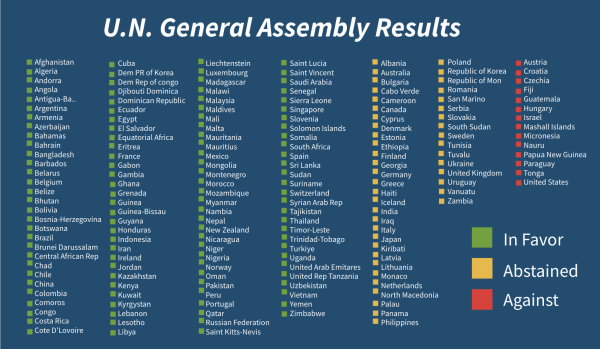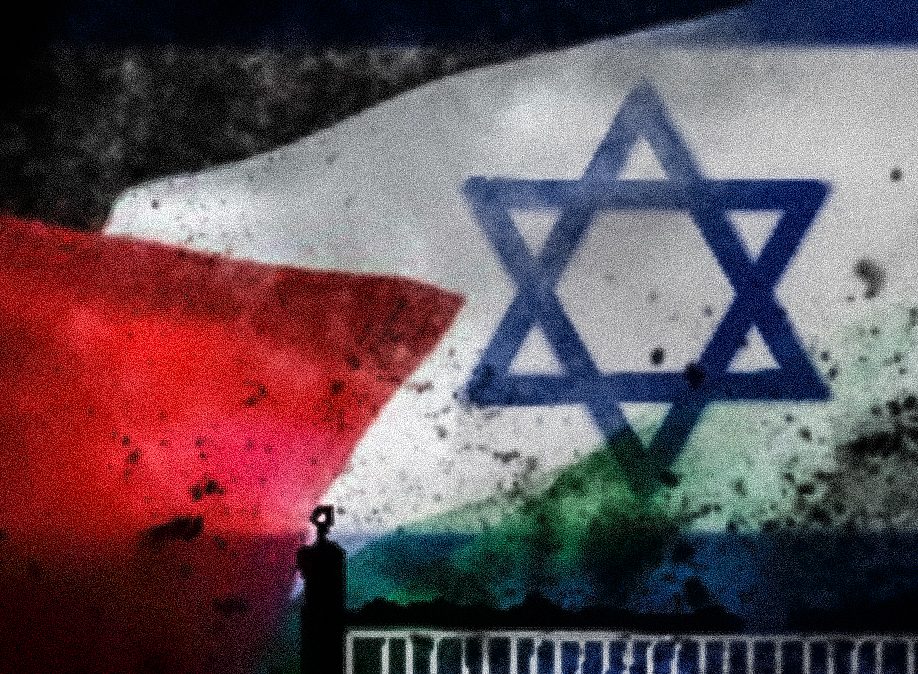Palestinian militant group Hamas launched a full-scale attack on Israel in early October. Now, over one month after the attack, the Israel-Hamas war has killed over 11,000 Palestinians in the Gaza Strip and over 1,200 Israelis.
“The Arab-Israeli conflict is not just a morality play between good and evil,” said former United States President Bill Clinton at the 2001 Israel Policy Forum gala. “It is a conflict with a complex history, whose resolution requires balancing the needs of both sides, including respect for their national identities and religious beliefs.”
Current circumstances of Israel and Palestine
These conflicts now bring the world to Oct. 7, 2023, where decades of military force, kidnapping, and terrorism in both states have provoked “the deadliest day for Jews since the holocaust,” according to Biden. Meanwhile, the Gaza Strip is in a dire crisis, with over 1.4 million displaced residents sheltered in schools in Gaza with little to no access to clean water, electricity, food, and medicine.
“Hamas is really smart. When they decide to rocket Israel, they insinuate themselves in the hospitals, in the schools, in the highly populous areas, and they are smart,” Clinton said at a campaign event in 2016. “They try to put the Israelis in a position of either not defending themselves or killing innocents.”
However, it is essential to note that Hamas does not represent all Palestinians and the Israeli government does not represent all Israelis.
Taking sides
About 76 years of armed conflict and failed peace talks have led to the current circumstances between Hamas and Israel’s authority. With dozens of airstrikes and military attacks killing and injuring civilians on both sides for decades, Palestine and Israel are in a perpetual humanitarian crisis.
However, the debate over which side provoked which, who is justified, and who should come out on top is heavy as nations and people become increasingly polarized.
Biden has announced his support for Israel on the notion they are responding to terrorist attacks, maintaining Trump’s stance.
“History has taught us that when terrorists don’t pay a price for their terror, when dictators don’t pay a price for their aggression, they cause more chaos and death and more destruction. They keep going, and the cost and the threats to America and to the world keep rising,” Biden said in a briefing regarding his stance on current wars.
In contrast, Prime Minister of Norway Jonas Gahr Stoere has called for a ceasefire in Gaza and humanitarian aid to Palestine.
However, the ideological split between countries is far from equal. The U.N. General Assembly met on Oct. 26 to vote on a non-binding plan proposed by Jordan, calling for an “immediate, durable and sustained humanitarian truce leading to a cessation of hostilities.”

Results are as follows: 120 countries voted in favor, 45 refrained from voting, and 14 voted against. The U.S., Israel, Austria, and Paraguay are among the countries that voted against the proposal.
International debate has also transcended into the U.S., where citizens are boycotting brands and celebrities that don’t follow their ideals. Many have taken to X and Instagram to call a boycott on Starbucks, which is allegedly suing the union of their workers for posting a pro-Palestinian message on social media. The Palestinian organization Boycott, Diversity, and Sanctions (BDS) has called for other targeted boycotts on McDonald’s, Amazon Web Services, and Chevron for their support of Israel.
Many U.S.-based brands are refraining from publicizing their support. However, as the leading pop culture influencers, celebrities are in the spotlight to define their side.
Among them are actress Natalie Portman, who extended empathy to the people of Israel on Instagram, model Gigi Hadid, who gave her condolences to her Palestinian and Jewish loved ones, and Jamie Lee Curtis, Mark Ruffalo, and Adam Sandler, who are among the celebrities that declared the side of peace.
“Millions of Israelis and Palestinians have worked so hard to end the cycle of violence, only to see it escalate. Beyond governments engaged in conflict, there are people crying out for an end to the human suffering that has gone on for many generations,” actress Lynda Carter wrote on X.
The cost of war

As of Nov. 10, over 11,000 people have died in Gaza, with another 27,000 injuries reported. Around 68% of deaths were identified as women and children. Over 1.6 million, or around 70%, of Gazans are internally displaced. Thousands remained buried under the rubble.
As of Nov. 10, over 1,200 people have died in Israel, 70% of them civilians, and over 5,000 injuries were reported. Around 239 hostages are currently held in Gaza.
Since 2008, over 18,500 Palestinians have been killed and over 183,000 injured in conflict with Israel, many of them civilians.
Since 2008, over 1,500 Israelis have been killed and over 11,000 injured in conflict with Palestine, many of them civilians.




